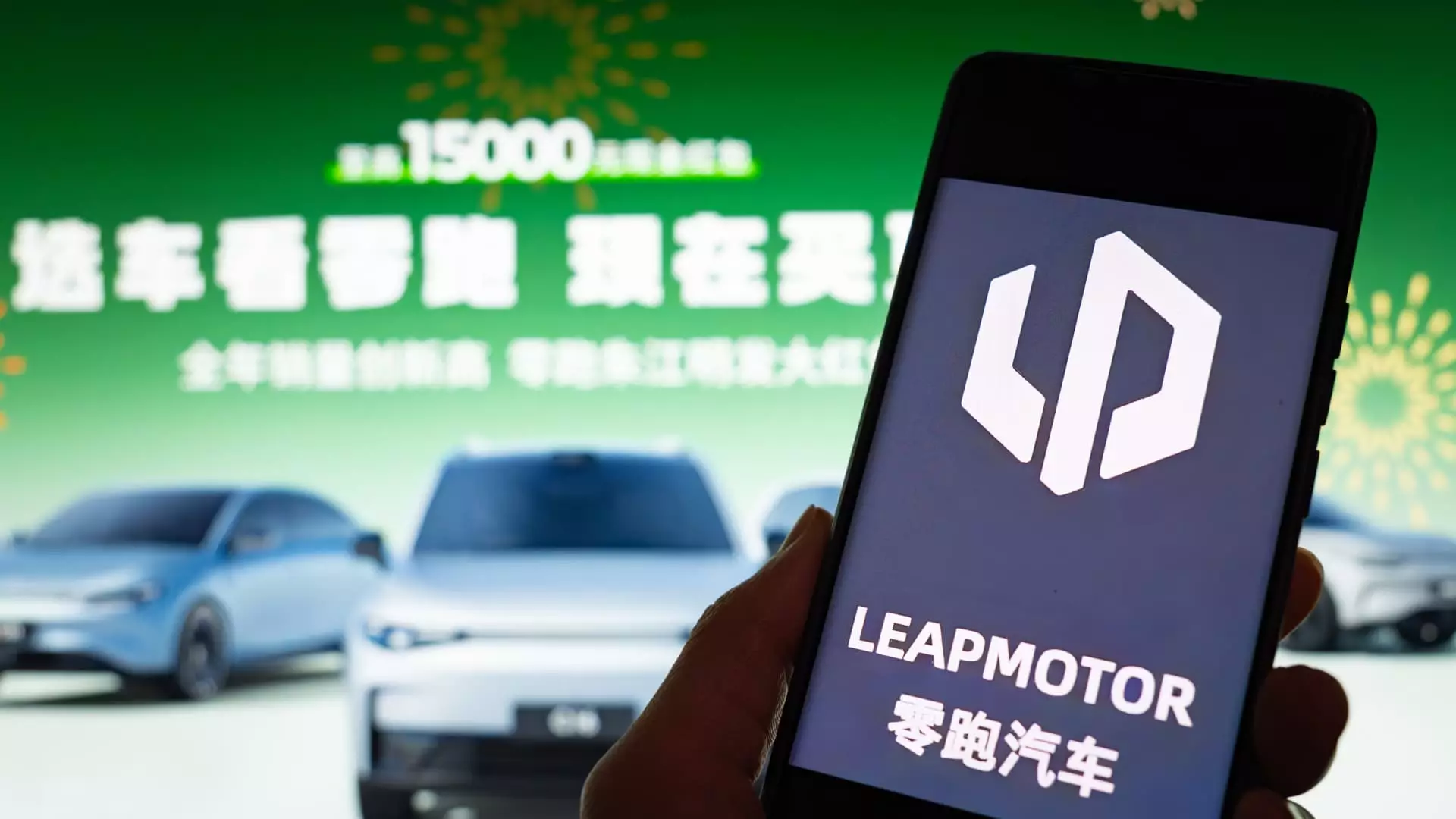China has become the epicenter of electric vehicle (EV) innovation, exemplified by record-breaking deliveries in May from trailblazers like Leapmotor and Aito. Leapmotor, backed by renowned automotive conglomerate Stellantis, claims an astonishing 45,067 vehicles delivered, marking an impactful 148% increase compared to the same month last year. Meanwhile, Aito, which collaborates with technology titan Huawei, celebrated an impressive delivery count of 44,454 units, amid the swirling chaos of a price-driven market upheaval. These numbers illustrate two fundamental truths: the ambitious nature of these startups and the urgency they feel as competition intensifies.
Consider Leapmotor’s timely launch of the updated C10 model—a mid-sized SUV priced at 122,800 yuan (approximately $17,045). The strategy appears to be paying off, as the automaker reported over 13,000 units delivered in May alone. The simplicity of these production tactics has paved the way for continued growth, but the increasing pressure on prices raises questions about sustainability moving forward.
BYD Stands Tall Amidst the Price War
As electrification sweeps across the automotive landscape, BYD remains a steadfast giant with 376,930 vehicles sold in May. The significant price cuts across 22 models, most notably the Seagull hatchback — slashed by 20% to just 55,800 yuan — exemplifies a tactical maneuver designed to maintain consumer interest amid growing competition. Yet, with such aggressive pricing comes scrutiny; there are whispers that BYD may be indulging in controversial practices that echo back to the dire financial collapse seen with China Evergrande Group.
The pressure cooker atmosphere, generated by this price war, instills fear among industry observers that another real estate bubble collapse could arise, this time within the EV sector. BYD’s attempt to quash discontent with Jinan Qiansheng highlights not just an internal struggle, but raises critical questions about what lengths firms may go to secure their market positions.
New Entrants Make Their Mark
Despite the fierce competition, other automakers continually strive to carve a niche for themselves within the market landscape. Xpeng’s deliveries dipped to 33,525 units from the previous month, but its staggering year-on-year growth of 230% signifies an upward trajectory that cannot be ignored. Meanwhile, Xiaomi, traditionally recognized as a smartphone manufacturer, stepped into the automotive arena with more than 28,000 vehicles delivered in May. The upcoming launch of its YU7 luxury SUV in July could further solidify its commitment to forging a credible presence in electric mobility.
Li Auto notched up solid numbers with 40,856 vehicles delivered, reflecting a 16.7% year-on-year increase. Yet not all startups are faring well; the likes of Nio have experienced struggles with declining deliveries while trying to reposition themselves amid changing market dynamics. The warning signs are evident: pink slips and production adjustments could alter the path of many new entrants if they aren’t careful.
The Global Reach and Challenges Ahead
Chinese EV companies are not content to operate solely in domestic confines; they’re decidedly eying international markets, particularly in Africa, as a potential avenue for growth amidst tariffs imposed by the European Union and the United States. BYD’s recent expansion into Benin signals a strategic shift as automakers seek new opportunities beyond traditional markets. Yet, there remains a lingering question about the challenges they will face: Will they find a welcoming environment, or will they be met with barriers akin to those in more affluent markets?
The looming uncertainties related to global tariffs and policies demonstrate that while Chinese EV manufacturers show promising growth trajectories, they are stepping into turbulent waters. It’s a paradoxical situation where success at home does not guarantee ease abroad.
In recent months, the EV industry takes on a frenzied character — innovation and ambition clash with economic realities and fluctuating markets. The recent strides made by China’s electric vehicle brands reveal a determination that is nothing short of inspiring, but whether this trajectory is sustainable in the long run remains to be seen. The journey of these electric innovators becomes a manifestation of resilience, ambition, and the proverbial double-edged sword of competition.

